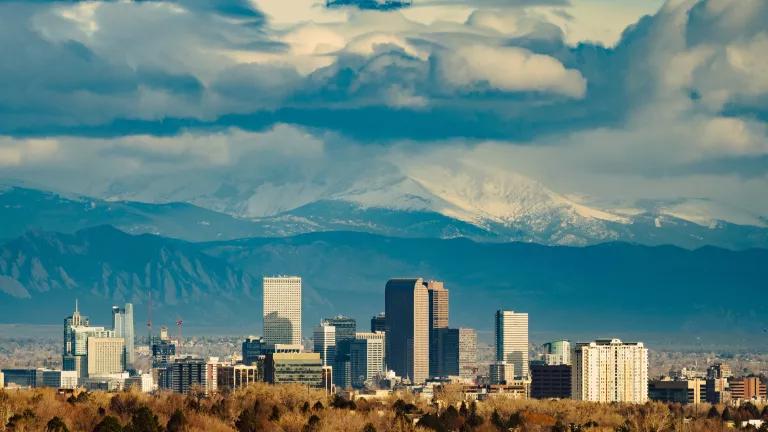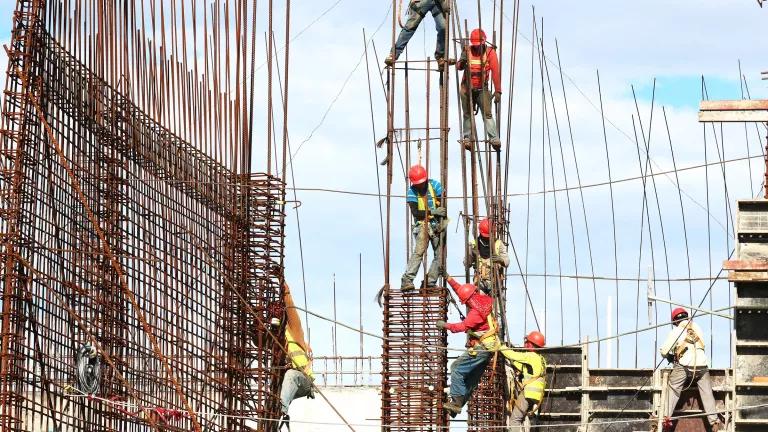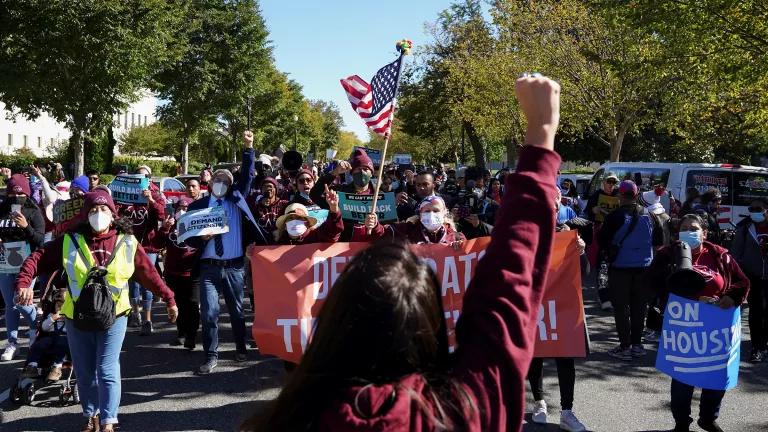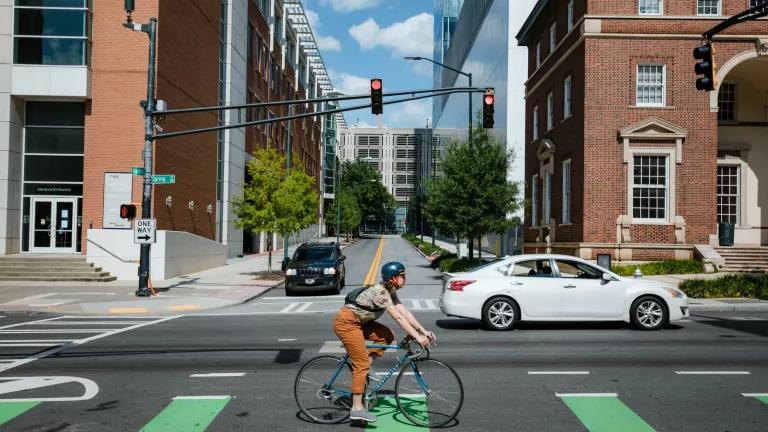Cities Are Leading the Way: 2020 Wins & Look Ahead
Cities made tremendous progress in their climate challenge goals throughout a difficult 2020. Now, cities are eyeing all that is possible in the new year.

This post was co-authored by Monica Portillo.
There’s no question that 2020 has been a challenging year for cities, which have been on the frontline of multiple crises simultaneously—COVID-19, racial injustice, climate change, and the worst economic hardships in many decades. But cities are also where leadership and solutions can be developed quickly to address these intertwined threats and create benefits for residents and communities.
The Bloomberg Philanthropies American Cities Climate Challenge, an acceleration program that empowers 25 U.S. cities nationwide to enact ambitious initiatives that help them meet—or even beat—their near-term carbon reduction goals, has been able to support cities through this tumultuous year to achieve meaningful successes that have the potential to benefit people, communities, and the planet.
Every one of the Climate Challenge cities has made tremendous progress in its goals, and they continue to demonstrate true leadership in the fight against climate change. As the year wraps up, let us reflect on just a few of the climate wins across the country that have been accomplished with our support with an eye to what’s possible in the new year.
Charlotte, North Carolina
Charlotte approved funding for a utility-scale solar farm, projected to be operational by 2022, through a new green tariff. The solar farm is expected to save the city nearly $2 million in electricity costs, freeing up taxpayer dollars for other programs; offset about 25 percent of carbon emissions from municipal buildings over the next 20 years; and generate more than 400 local jobs.
Denver
Denver’s ambitious Climate Action 2020 Recommendations Report paved the way for the creation and passage of Ballot Measure 2A, which will raise an estimated $40 million annually through a sales tax increase of 25 cents for every $100 spent. Half of the revenue will be invested in low-income communities and communities disproportionately burdened by pollution and climate impacts.
Honolulu
Honolulu unanimously passed Bill 25, requiring new buildings to be more energy efficient, be built with solar-ready roofs, and include EV-ready parking, with about 25 percent of parking spots wired for Level 2 electric vehicle charging. These and other new standards will enable Honolulu to help Hawai'i reach its goal of 100 percent renewable energy by 2045 while growing the clean energy job market.
Pittsburgh, Pennsylvania
Pittsburgh’s city council passed an ordinance requiring all new or renovated city government buildings to be net-zero energy ready, to be achieved through a combination of maximizing energy efficiency and sourcing renewable energy to enable municipal buildings to produce as much energy as they consume on an annual basis. This foundation of municipal building energy efficiency will lead the way toward cutting energy consumption in privately owned buildings in the future.
St. Louis
St. Louis approved Board Bill #219, a building energy performance standard (BEPS), which was the first of its kind in the Midwest, and the fourth nationwide. The city’s BEPS focuses on driving reductions in energy use and emissions in existing buildings and will create a Building Energy Improvement Board to ensure compliance among buildings performing below the standard. The BEPS will help retain and add to the estimated 42,000 jobs in Missouri’s energy efficiency industry.

A Just and Sustainable Recovery
While cities have been leaders on climate for decades, 2020 has clearly demonstrated how we must address the pressing issues we face—health, racial equity, climate, and the economy—in interconnected ways, because they are interconnected.
Therefore, to effectively address reducing greenhouse gas emissions from buildings and transportation, the two biggest sectors from a climate impact perspective, cities must work to address the conditions imposed upon traditionally underserved communities, which are the ones most often impacted by environmental and health injustices. Centering voices from these communities—often Black and brown voices—will allow cities to deliver benefits that lead to greater prosperity and resilience overall.
Several Climate Challenge cities are tackling these multifaceted challenges with bold initiatives that we can learn from.
- Columbus, Ohio is building on the success of its 30,000 audits by placing economic inclusion at the heart of a new residential retrofitting program.
- Minneapolis is centering the voices of environmental justice organizations in its push for a clean, equitable electric grid.
- Philadelphia is fostering a plan that addresses energy burden that is being co-created by and for low-income residents, developing a blueprint for genuine and meaningful community engagement in turn.
- San Jose, California, is likewise fostering a co-created community engagement process for its building decarbonization road map.
Cities and those who support them should look to these examples as pathways to evolve how policies and programs are designed and implemented to create more durable and just change. And, this also applies for how cities themselves operate. Looking ahead, cities should take advantage of additional fiscal opportunities to build more durable and just change by: (1) reframing the budget process in terms of long-term investment and impact, being mindful of ways to maximize health, equity, climate, and economic outcomes over the long run; and (2) strengthening and then growing the city’s underlying value—the health and well-being of people, sustainability of natural resources, and long-term economic viability. Following these two paths will bolster a city’s resilience against similar shocks in the future.
All 25 Climate Challenge cities have made great strides in improving public health, economic opportunity, and overall quality of life. The actions taken are a powerful demonstration of how change at the city level can have profound impacts and bring us closer to a more sustainable future. Yet there is still so much more to do. And the Climate Challenge cities are definitely up to the challenge and can serve as inspiration for others as we all look forward to 2021.



